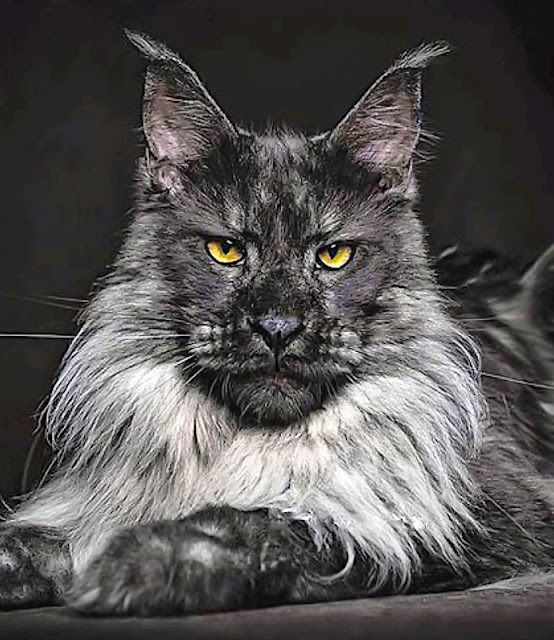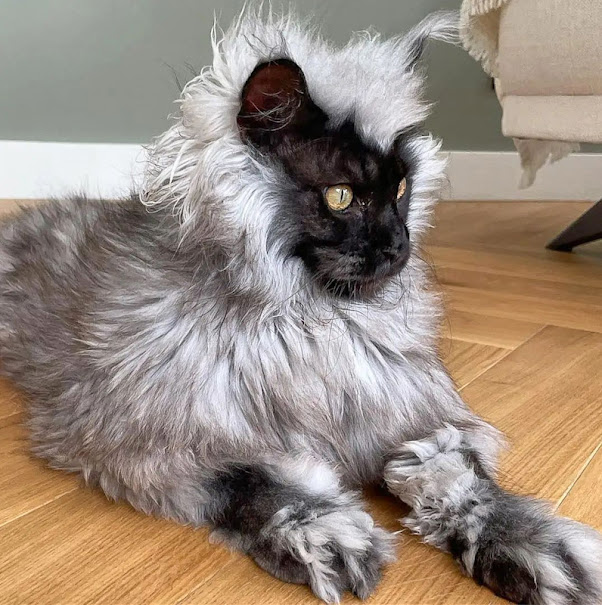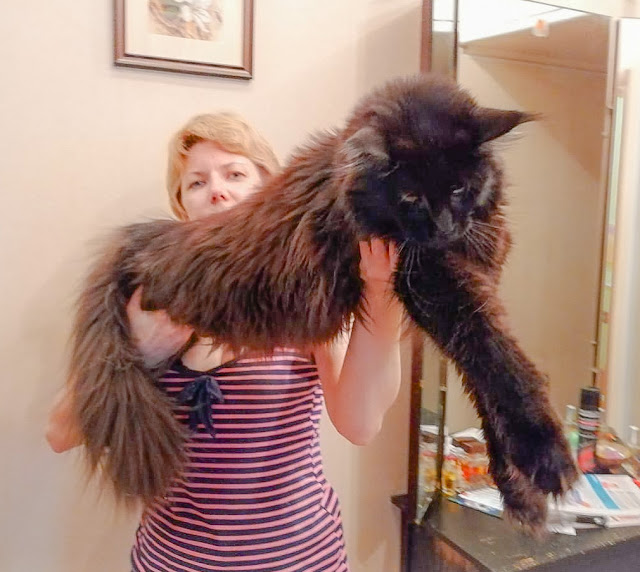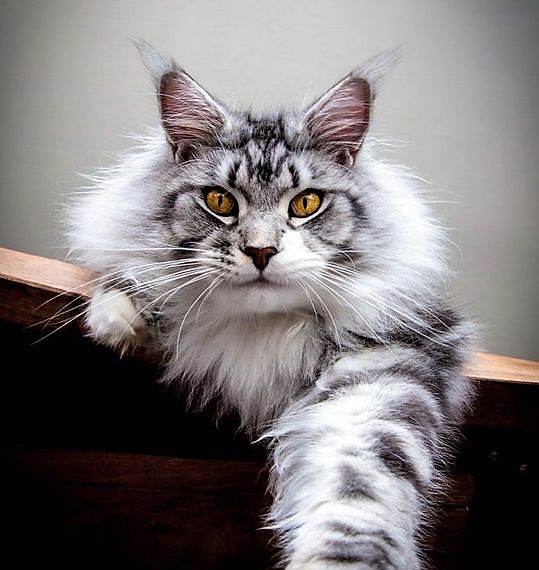5 genetic diseases inherited by the Maine Coon
My research leads me to believe that the ever popular Maine Coon purebred cat can suffer from five genetically inherited diseases. This list might not be comprehensive. It may be an evolving list. I say that because the book that I have on the inheritance of genetic diseases, which I thought was comprehensive, is not, as it was written some time ago (1992 - Medical, Genetic & Behavioural Aspects of Purebred Cats by Ross D Clarke DVM).
I have other pages on this subject so I won't go into detail here. The diseases are listed as:
- Hypertrophic cardiomyopathy (HCM) - sometimes caused by MYBPC3-A31P mutation;
- Another heart disease caused by a genetic mutation of a gene labelled: troponin-T (TNNT2);
- Pectus excavatum - rare in Maine Coons;
- Patellar luxation - can occur concurrently with
- Hip dysplasia.
Out of interest, the Bengal cat also has a problem with HCM. It is not unusual, in fact it is typical, for purebred cats to inherit certain diseases or be predisposed to that inheritance because they are line bred which is basically inbreeding so that they breed true in order to ensure that the entire family meet the required breed standard.
 |
| Enormous Maine Coon. Photo in public domain. |
All cat breeders selectively breed employing controlled inbreeding techniques to achieve the results they want which is for their cats to breed true while avoiding the deleterious effects of inbreeding which are described as inbreeding depression. It's a balancing act as I see it. Although, I am not a cat breeder and never have been. Everything that I know about the purebred cats and breeding I have learned first-hand from reference books or in discussion with other people.
Numbers 4 and 5 are above are both concerned with joints which is particularly relevant for the Maine Coon because it is the biggest domestic cat breed and the size of the cat puts extra pressure on the joints. Some large dogs also suffer from patellar luxation and hip dysplasia. The latter causes an abnormal gait and a reluctance to jump.
It should be said, however, that my book on this topic states that hip dysplasia is found "occasionally in Maine Coon cats". How often, therefore, do these diseases pop up? The UC Davis website tells us that about two thirds of Maine Coons around the world are free of the genetic mutation which causes HCM in this cat breed. About one third of them have one or two copies of the mutation. When two copies of the mutation are present they "cause considerable embryonic death based on the observed deficit of homozygotes". The incidence of HCM in the studies that they refer to was 5.4% in cats "that were negative for the A31P mutation and 5.4% with the mutation". That's a guideline figure and they state that the mutation that they refer to is not the sole cause of HCM in Maine Coons.
With regard to HCM, cats with two copies of the disease-associated mutation are at risk of sudden cardiac death because of the possibility of severe cardiac disease. Cats can die by the age of four. Cats that have one copy of the mutation have a longer life expectancy but they may still develop HCM.
On an associated subject, in the UK, Tesco insurance state that the following claims were made with respect to this breed. You can see that none of them relate to the above-mentioned inherited diseases.
 |
| Health insurance claims for the Maine Coon in the UK. My thanks to Tesco. |










Comments
Post a Comment
Please share your Maine Coon experiences.